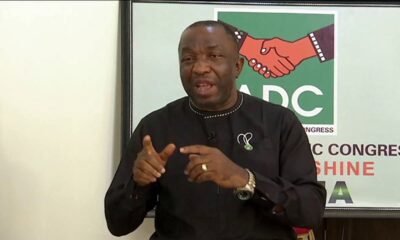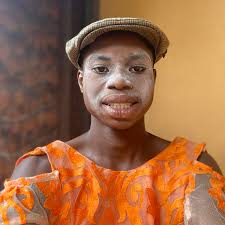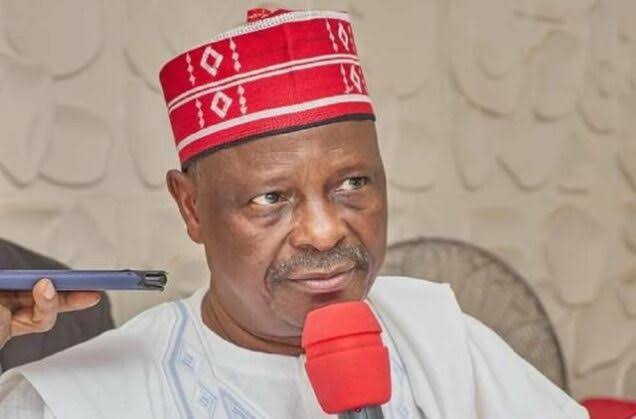Special Feature
26 years of civil rule: Time to reclaim the true meaning of democracy
By Ezenwa Nwagwu
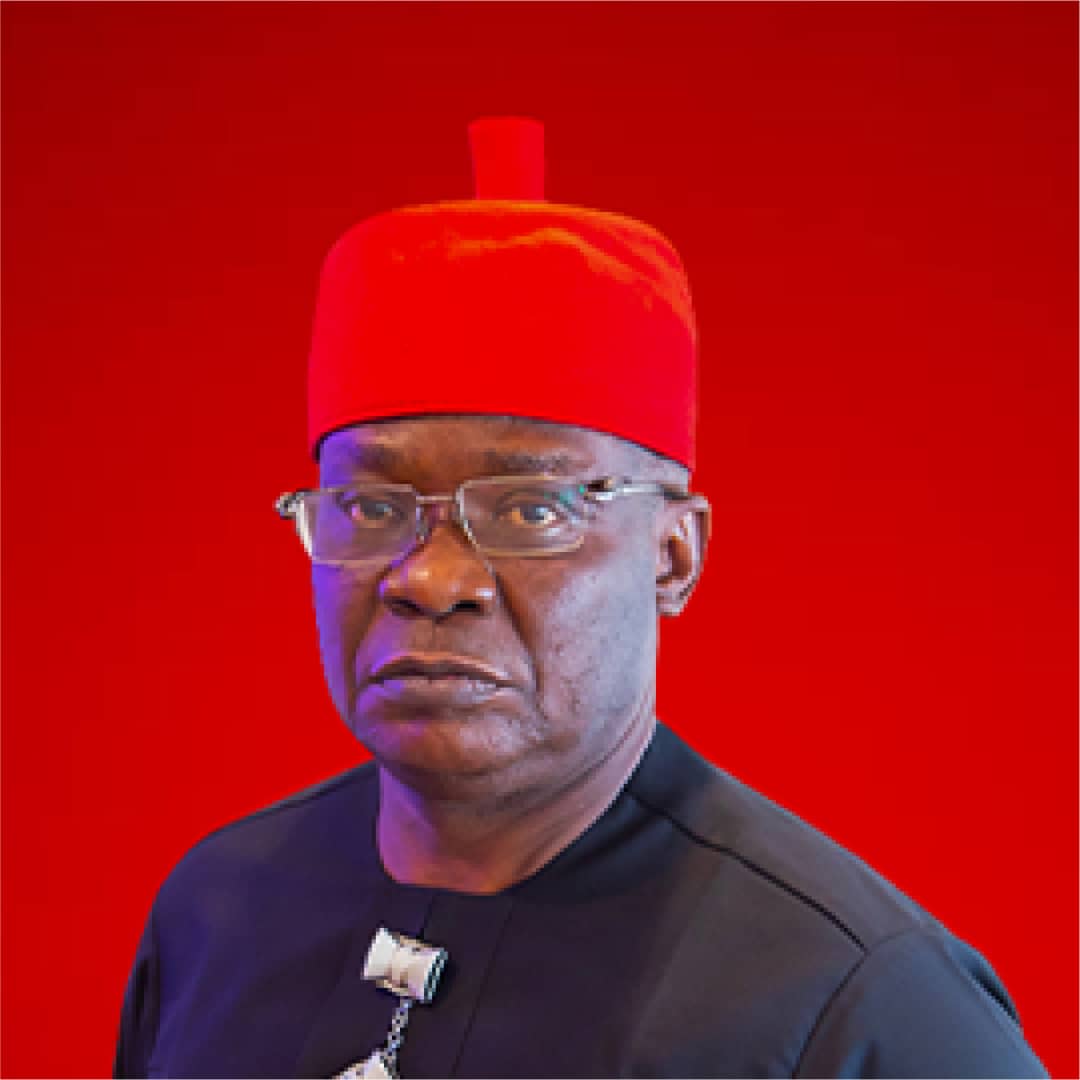
As Nigeria marks 26 years of uninterrupted civil rule, there have been many conversations on the trajectory of our democracy, whether it has genuinely evolved or simply stumbled forward, weighed down by old habits and unfulfilled promises.
Of course, there are also those who, with honorable intentions, beat their chests and highlight the milestones achieved, pointing to roads built and budgets passed as evidence of democratic success. But beyond the fanfare or cynicism, this anniversary presents a critical moment to reflect and to ask: what could this democracy truly mean for the average Nigerian?
Therefore, the purpose of this discussion is to possibly challenge us to rethink what democracy truly stands for. It is my hope that this will spark a deeper reflection, one that shifts our focus away from what many assume our democracy is really about.
This is important to me because twenty-six years ago, Nigeria returned to civil rule after decades under military dictatorship. It was a hard-won transition, borne on the backs of countless sacrifices, with the promise of liberty, accountability, and institutional governance. For many of us, it’s current affairs and not history.
However, as we mark over two decades of democracy, we must ask—what was the democracy we fought for? Have we truly deepened the values and institutions that democracy was meant to bring?
Let me begin by saying that we often hear people describe things like efficient service delivery or infrastructure development as some of the key gains of democracy. While that may sound right on the surface, democracy goes far beyond that. We didn’t fight to remove the military just so we could get more roads. Even though roads are important
If it was just about service delivery, the military actually held their own. They built bridges, and they built roads and hospitals. In fact, they built some of the most important and enduring infrastructure our country still relies on today. But there were incredible values that they inculcated – negative values, command-style leadership, suppression of dissent, and authoritarian thinking. It is for this reason that we fought to remove the military and entrench democracy.
Hence, the conversation I would prefer for us to have is: after 26 years, has the attitude of our politicians truly changed? Have we strengthened our processes and institutions? Have we built robust political parties—and just as importantly, a credible opposition? Is governance today more open and accountable? Or are we still struggling to shake off the negative values the military left behind?
The point I am making is that what we see now is a kind of obsession with the idea of democracy. Discussions around “dividends of democracy” have now been reduced to how many kilometers of roads have been constructed or how many months of salaries and pensions have been paid. You see, people build just three kilometers of road and then spend ₦20 million to publicize it.
For me, this is where the challenge lies and where the confusion begins—when governance is mistaken for democracy itself. As important as those roads may be, that is not what democracy is about. Democracy was never meant to be reduced to showy projects. It’s about values—transparency, accountability, participation—and the systems that uphold them.
What we used our youth to fight for was freedom. What we mobilized for, what we risked our lives for, was freedom. Not just freedom to vote, but the freedom that comes with transparency, accountability, and open governance. These deeper, more intricate values of democracy—the things that give people real agency—are the very ones we’re still tiptoeing around.
While I understand the tendency to have a chest-thumping about what has been achieved, and how elections have been held consistently in 26 years, my point is we need to pause and ask, is it possible that we only are celebrating superficial wins? Because if that is all that we focus on, then we will miss the deeper truth.
Think about it: if, God forbid, we had a military government tomorrow. What would they do? They’d build roads, bridges, pay salaries, and even fund hospitals. That’s not the mark of democracy. That’s basic governance. The real achievement lies in strengthening democratic institutions in a way that protects our freedoms, promotes accountability, and gives people a genuine voice. That’s the point I’m making.
But we are still far from that vision. Unfortunately, we are still governed by a military mindset. We are still commandist in thinking, authoritarian in relationship, and dictatorial in outlook. We still build personality cults. If you go anywhere, what you see is the worship of people, not respect for institutions – “Oh the DG is coming!” That is not what democracy is supposed to be. It is supposed to be about the process. We are not yet process driven people.
As I reflect on 26 years of civil rule, one of my deepest concerns is whether those in the executive arm truly understand the meaning of representation. Take, for instance, a minister—does he see himself or herself as a representative of the people? Especially the way it is couched in our country, where every minister comes from a state. How many ministers actually go back to engage their communities, explain policies, or defend government decisions?
What does that mean? As you are in the Federal Cabinet, if they are discussing the RUGA for instance, a minister is supposed to go to his state and tell them that we have a plan for this, and this is the value for you. But we don’t have such representation. Representation isn’t just about occupying a seat at the federal level—it’s about serving as a bridge between national policy and local interest.
Unfortunately, most ministers operate in a vacuum, disconnected from the people they supposedly represent. And it’s not just the executive; even the lawmaker, who was elected to serve, sees himself like an emperor—disconnected from the people, unaccountable, and power-drunk. Governance has become more about controlling territory than fulfilling a mandate. This is a tragic distortion of democratic representation and a major reason our democracy still feels hollow
This is not to say that we haven’t made any progress, and my point is not to dismiss the gains made. But let’s not pretend things are normal. The political class continues to behave in ways that betray the democratic spirit. Power is still personalized, not institutionalized. We do not have strong political parties built on ideology or values. Our legislature, both national and especially state, are often rubber stamps. Our judiciary still struggles to be independent. State Assemblies and Judiciary don’t still enjoy financial autonomy. Until we build democratic institutions that function without regard for who is in power, we will continue to circle around in pseudo-democracy.
Imagine a Nigeria where state Houses of assembly perform their legislative duties without fear or favor. Imagine a judiciary who doesn’t wait for the executive to breathe before it can act. Imagine a democracy where freedom of expression is encouraged, not suppressed. These are the values we should be pursuing—not just how many kilometers of roads were paved.
Let me conclude with a simple analogy. Under the military, let’s say they claimed they were going to buy 1,000 chairs. In the end, only 700 might be supplied—but no one could ask questions. You couldn’t even count because the system didn’t allow you to. And if you can’t count, you can’t hold anyone accountable.
But democracy, at its core, is about asking questions. Did you actually supply 1,000 chairs? What’s the quality? Was there a bidding process? Who got the contract? These are the intricate values that define a functioning democracy—transparency, accountability and openness. Unfortunately, these values are still largely missing today.
What we’ve done is carry over the military mindset—the silence, the impunity, the intolerance for scrutiny. In fact, in today’s Nigeria, simply asking questions seems to irritate those in power. Ask, “Who approved this project? How was it funded? How much was spent?” and you’ll quickly see just how uncomfortable our leaders get. And that’s the real test—when leaders see questions as threats rather than as a healthy part of governance, it shows we’re still struggling to practice true democracy.
I urged our political leadership to read the signs and look at the views. The pictures up there are not very glaring and as beautiful as they should be. The Nigerian political class must reorient itself and understand the essence of democracy. It is not merely about election but about representation. Not about infrastructure but strong institutions. Only then can we say we have earned not just civil rule but a true democracy
Ezenwa Nwagwu is the Executive Director, Peering Advocacy and Advancement Centre in Africa
-
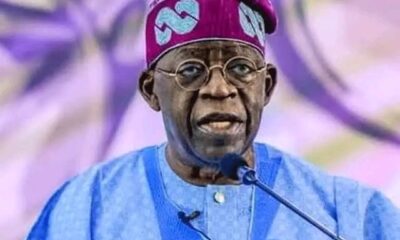
 Opinion2 days ago
Opinion2 days agoWhy Tinubu is not weaponising poverty – Ogala
-

 National News23 hours ago
National News23 hours agoBreaking: FG declares June 6, 9 public holidays to mark Eid-ul-Adha celebration
-
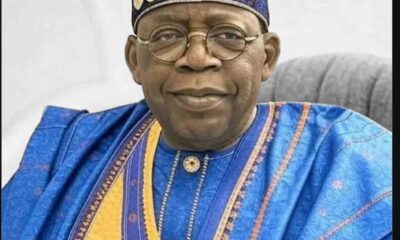
 National News2 days ago
National News2 days agoYour anti-Tinubu coalition will fail, APC cheiftain tells Atiku, Obi, others
-
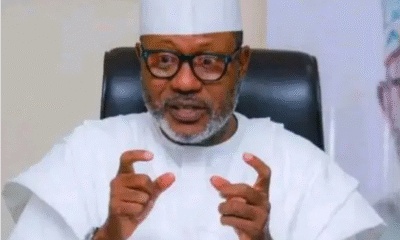
 Politics2 days ago
Politics2 days agoBreaking: Buhari’s minister dumps APC in Nasarawa ahead of 2027
-

 Crime and Law2 days ago
Crime and Law2 days ago79-year-old Nigerian woman cries out after allegedly being exploited in U.S
-
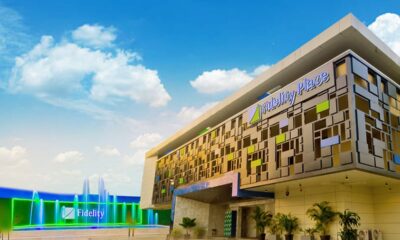
 Business2 days ago
Business2 days agoFidelity Bank expands, opens 3 more branches across Nigeria
-
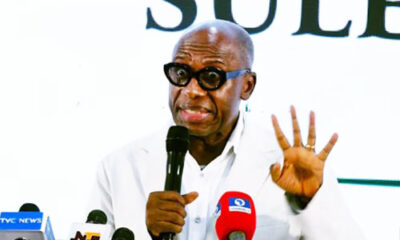
 Politics2 days ago
Politics2 days agoOpposition will unseat Tinubu in 2027 – Amaechi
-

 Metro News2 days ago
Metro News2 days agoGovernment declares Monday public holiday


